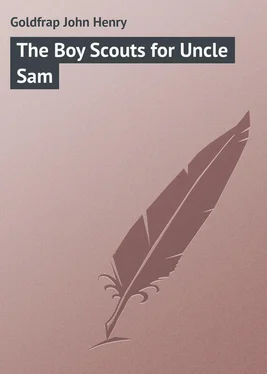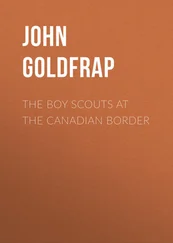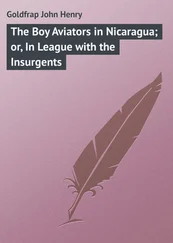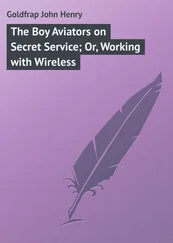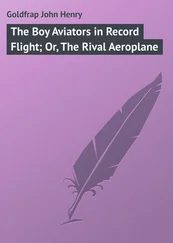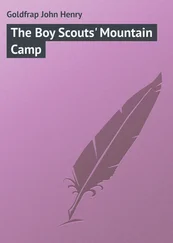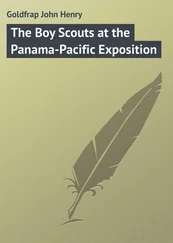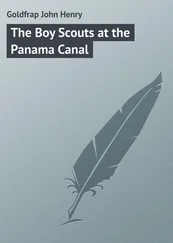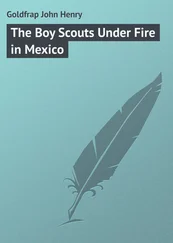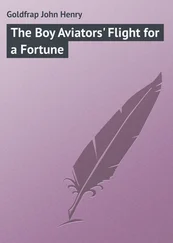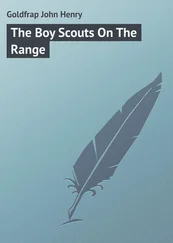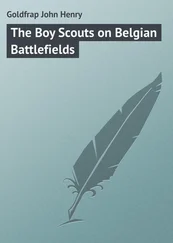John Goldfrap - The Boy Scouts for Uncle Sam
Здесь есть возможность читать онлайн «John Goldfrap - The Boy Scouts for Uncle Sam» — ознакомительный отрывок электронной книги совершенно бесплатно, а после прочтения отрывка купить полную версию. В некоторых случаях можно слушать аудио, скачать через торрент в формате fb2 и присутствует краткое содержание. Жанр: foreign_prose, foreign_children, на английском языке. Описание произведения, (предисловие) а так же отзывы посетителей доступны на портале библиотеки ЛибКат.
- Название:The Boy Scouts for Uncle Sam
- Автор:
- Жанр:
- Год:неизвестен
- ISBN:нет данных
- Рейтинг книги:5 / 5. Голосов: 1
-
Избранное:Добавить в избранное
- Отзывы:
-
Ваша оценка:
- 100
- 1
- 2
- 3
- 4
- 5
The Boy Scouts for Uncle Sam: краткое содержание, описание и аннотация
Предлагаем к чтению аннотацию, описание, краткое содержание или предисловие (зависит от того, что написал сам автор книги «The Boy Scouts for Uncle Sam»). Если вы не нашли необходимую информацию о книге — напишите в комментариях, мы постараемся отыскать её.
The Boy Scouts for Uncle Sam — читать онлайн ознакомительный отрывок
Ниже представлен текст книги, разбитый по страницам. Система сохранения места последней прочитанной страницы, позволяет с удобством читать онлайн бесплатно книгу «The Boy Scouts for Uncle Sam», без необходимости каждый раз заново искать на чём Вы остановились. Поставьте закладку, и сможете в любой момент перейти на страницу, на которой закончили чтение.
Интервал:
Закладка:
John Henry Goldfrap
The Boy Scouts for Uncle Sam
CHAPTER I.
THE EAGLES AT HOME
"After all, fellows, it's good to be back home again."
The speaker, Rob Blake, leader of the Eagle Patrol of Boy Scouts, spoke with conviction. He was a "rangy," sun-burned lad of about eighteen, clear-eyed, confident and wiry. His Boy Scout training, too, had made him resourceful beyond his years.
"Yes, and it's also good to know that we each have a good substantial sum of money in the bank as the result of the finding of the Dangerfield fortune," agreed Merritt Crawford, his second in command, a sunny-faced, good-natured looking youth a little younger than Rob and crowned with a tousled mass of wavy brown hair.
"Well, at any rate we've had plenty to eat since we've been back," chimed in Tubby Hopkins, a corpulent youth who owed his nickname to his fleshiness.
"That's right, Tubby," laughed Paul Perkins, another bright-eyed young "Eagle"; "that's something we didn't always get in the Adirondacks. I thought at one time that you'd fade away to a shadow."
"Humph! Pretty substantial sort of shadow," grinned Hiram Nelson, who, besides Paul Perkins, was the inventive genius of the Eagles.
The scene of these reminiscences was the comfortably furnished patrol room of the Eagles, situated over the bank of the little town of Hampton on the south shore of Long Island. Rob Blake's father, the president of the bank, was a patron of the Eagles, and had donated the room to the boys some time before.
Boxing gloves, foils, baseball bats and other athletic apparatus dear to a boy's heart lay scattered about the room in orderly confusion. On the walls were diagrams of the "wig-wag code" and the "Morse code simplified," with other illustrations of Scout activities.
But it was above the door that there was perched the particular pride of the Eagles' hearts – a huge American eagle, a bird fast disappearing from its native haunts. With outstretched wings and defiant attitude it stood there, typifying the spirit of its young namesakes. The eagle had been a present to the lads from Lieutenant Duvall, of the United States Army, whom they had materially aided some time before in various aerial intrigues and adventures. What these were was related in full in the "The Boy Scouts and the Army Airship."
In the first volume of this series, "The Boy Scouts of the Eagle Patrol," it was told how the boys came to organize, and how they succeeded in unravelling a kidnapping mystery, involving one of their number. In the second volume, "The Boy Scouts on the Range," we followed the boys' adventures in the far southwest. Here they encountered Moqui Indians and renegade cow-punchers. But through all their hardships and adventures they conducted themselves according to the Scout laws.
The third volume was "The Boy Scouts and the Army Airship," referred to in connection with Lieutenant Duvall. In this book a military biplane played an important part, as did the theft of a series of plans of a gyroscope invention of Lieutenant Duvall's, who was an all-around mechanical genius.
In the story that preceded the present account of the Eagle Patrol the lads found themselves in the Adirondacks on a strange mission. With a certain Major Dangerfield, a retired army officer, they searched for a lost cave in which an old-time pirate, one of the Major's ancestors, had hidden his loot when Indians threatened him. How the cave was located and the startling discovery made there, we have not space to describe here. But in the wildest part of the "land of woods and lakes" the boys encountered some thrilling adventures, not the least of which was Rob's battle with the moonshining gang that infested a lonely canyon.
From this trip they had returned not more than two weeks before the scene in the meeting-room, which we have described, took place. Bronzed, clear-eyed and alert, they were already longing for action of some sort. How soon they were to be plunged into adventures of a variety even more exciting than any they had yet encountered they little dreamed at the moment.
They were still laughing over the idea of the substantial Tubby's rotund form being compared to a shadow when there came a tap at the door of the room in which they were assembled.
"Guess that's Andy Bowles," said Rob, referring to the only member of the Patrol who was not present; "wonder why he's so late."
Then, in a louder voice, he cried:
"Come in, Andy."
But the voice that answered as the door was flung open was not Andy's. Instead, it was a deep, resounding bass one.
"I'm not Andy; but I'll accept the invitation."
As the owner of the voice, a tall, well-set-up man with a military bearing, stepped into the room all the Scouts sprang erect at attention, and gave the Scout salute. Then they broke into three cheers.
"Why, Lieutenant Duvall, what are you doing here?" exclaimed Rob, coming forward.
The young officer shook hands warmly with the leader of the Boy Scouts. Then, while the others pressed closer to the lieutenant – the same officer who had conducted the aviation tests at the "tunnelled house" – he addressed Rob.
"The fact is, I came down here to see if you are willing to tackle some more adventures," he said.
"Are we – " began Rob; but a roar from the Scouts interrupted him.
"Just you try us, Lieutenant."
"More adventures? Great stuff!"
"I'm ready right now."
"You can count on me."
The air fairly bubbled with confusion and excitement.
The Lieutenant roared with laughter.
"I do believe if you boys were told to lead a forlorn hope up to a row of machine guns you'd do it," he exclaimed; "but all this time I've been leaving my friend outside. May I bring him in?"
"Why ask the question?" exclaimed Rob. "This room is at the disposal of the United States Army at any time."
"Well, in this case it must be at the disposal of the Navy also," smiled the officer. Then, turning his head, he called to someone outside in the hallway, "Dan, the Eagles are prepared to receive the Navy."
At the word, a stalwart young man of about Lieutenant Duvall's age, stepped into the room. He was deeply sun-burned, and had an alert, upright carriage that stamped him as belonging to Uncle Sam's service.
"Scouts of the Eagle Patrol," said Lieutenant Duvall, with becoming formality, "allow me to present to you Ensign Daniel Hargreaves, of the United States Navy, just now detailed on special service."
Once more came the Scout salute, and then, given with a will, the long drawn "Kr-e-e-ee" of the Eagles.
The naval officer's eyes twinkled.
"These are Eagles that can scream with a vengeance," he exclaimed to his companion.
"Yes; and they can show their talons on occasion, I can assure you," declared Lieutenant Duvall. "But 'heave ahead,' as you say in the Navy, Dan, and put your proposition before them."
The boys greeted this announcement with wide-open eyes. Somehow or other they felt impressed immediately that they were on the verge of another series of important adventures; that the unexpected visit of the officers had something to do with their immediate future. And in this they were not the least bit out of the way, as will be seen.
CHAPTER II.
THE FACE AT THE TRANSOM
"Of course what I am going to say will be held strictly confidential?" began Ensign Hargreaves, looking about him at the bright, eager faces of the young Eagles.
"We are Boy Scouts, sir," responded Rob proudly.
"I beg your pardon; but what I am going to say is so important to the nation that one word of it breathed abroad might cause endless complications and the ruin of certain plans. I have come to see you because my friend, Lieutenant Duvall, told me that he did not know anywhere in the country of a band of boys of similar resourcefulness, courage and high training."
Читать дальшеИнтервал:
Закладка:
Похожие книги на «The Boy Scouts for Uncle Sam»
Представляем Вашему вниманию похожие книги на «The Boy Scouts for Uncle Sam» списком для выбора. Мы отобрали схожую по названию и смыслу литературу в надежде предоставить читателям больше вариантов отыскать новые, интересные, ещё непрочитанные произведения.
Обсуждение, отзывы о книге «The Boy Scouts for Uncle Sam» и просто собственные мнения читателей. Оставьте ваши комментарии, напишите, что Вы думаете о произведении, его смысле или главных героях. Укажите что конкретно понравилось, а что нет, и почему Вы так считаете.
